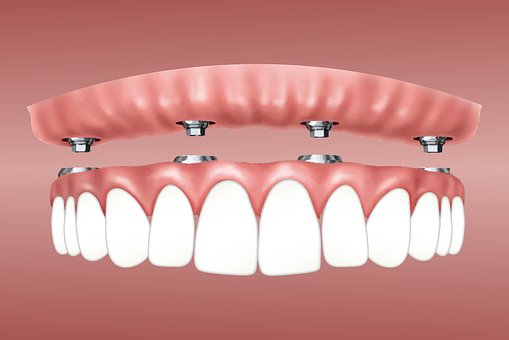5 Practical Tips for Denture Care
Dentures can significantly improve the quality of life for those who have lost some or all of their teeth, enabling them to eat, speak, and smile with confidence. However, proper care is essential to maintain their condition and ensure they continue to fit well and function effectively. Here are five practical tips for Canadians who use full dentures, partial dentures, denture implants, require denture adjustments, or use anti-snoring devices.
Choose the Right Type of Denture
Full Dentures
Full dentures are designed for individuals who have lost all their teeth in either the upper or lower jaw, or both. They rest on the gums and can be removed for cleaning. Ensuring a proper fit is crucial to avoid discomfort and potential sores from ill-fitting dentures.
Partial Dentures
Partial dentures are suitable for those who still have some of their natural teeth. These dentures fill in the spaces created by missing teeth and prevent other teeth from shifting. Like full dentures, they should fit comfortably, without causing irritation or movement of remaining teeth.
Denture Implants
For a more secure solution, denture implants are available. These involve surgically implanting a metal post into the jawbone, onto which the denture is then attached. This option provides greater stability and can feel more natural than traditional dentures.
Maintain Regular Denture Adjustments
Even with perfect fitting at first, the shape of your mouth and gums will change over time. Regular check-ups with your dental professional are essential for adjustments to ensure your dentures continue to fit well. Ill-fitting dentures can cause discomfort, sores, and can even affect your nutrition if eating becomes painful.
Clean Your Dentures Daily

Just like natural teeth, dentures require daily cleaning to remove food particles and prevent plaque build-up, which can lead to gum disease. Use a soft-bristle brush and non-abrasive denture cleaner. Avoid using regular toothpaste, as it can scratch the surface of the dentures, making them more susceptible to staining and odour. Soaking your dentures overnight in a denture cleaning solution can also help to keep them moist and maintain their shape.
Handle Your Dentures With Care
Dentures are delicate and can break if dropped. Always clean your dentures over a basin filled with water or a folded towel to cushion any fall. Make sure to store your dentures in a safe place when you’re not wearing them to avoid accidental damage.
Consider Anti-Snoring Devices if Needed
For individuals who wear dentures and have issues with snoring, anti-snoring devices can be a viable solution. These devices help to keep the airways open during sleep, reducing the likelihood of snoring. They can be particularly beneficial for denture wearers, as the removal of dentures at night can sometimes exacerbate snoring by allowing the jaw to drop back, further restricting the airway. Speak with your dental professional about whether an anti-snoring device is suitable for you.
Embracing Comfort and Confidence
Following these practical tips can help ensure your dentures, whether full, partial, or implant-supported, continue to serve you well. Remember, your dental professional is there to help with selecting the right type of denture, making necessary adjustments, and advising on proper care techniques. By maintaining good denture hygiene, handling them with care, and addressing any snoring concerns, you can enjoy the benefits of your dentures comfortably and confidently.
Dentures offer a way to restore your smile and functionality after tooth loss, but they do require commitment to proper care and maintenance. With the right approach, you can maximize their lifespan and your comfort, ensuring your smile remains bright and your quality of life high.
Hope you’ve found this guide both informative and enjoyable, providing you with valuable insights for your denture care journey.



